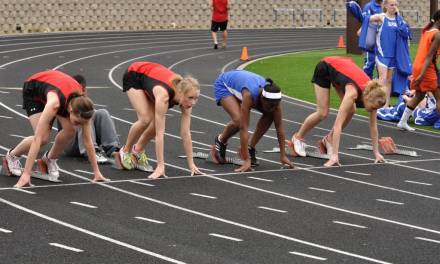“I forgot my PE kit” must be one of the most frequently heard statements at the beginning of any PE lesson, from swimming to outdoor sports, and there is possibly nothing more frustrating. Depending on the school’s policy this may mean finding extra kit, organising other work for them to do, or a student entirely missing yet another lesson.
However, is there something more than a student that just couldn’t be bothered to pick up a PE kit on the way out the door? Is this a symptom of a much deeper problem? To look at it in greater depth you can effectively divide this into two independent problems: the first forgetting the kit, and the second using a missing kit as an excuse to get out of PE.
It may seem unbelievable but there are genuine reasons for a child to repeatedly forget their PE kit. You might expect this from children with diagnosed learning difficulties, but don’t forget girls are much less likely to be diagnosed with behaviours such as ADHD and ADD until later in life.
These students will rely on routine each day, and that small extra bag is outside their daily routine. There may be underlying issues at home that mean their kit doesn’t get washed in time, or growing teens may be outgrowing kit and ashamed to come into school in kit that is too small.
For the second area there are a huge variety of reasons a student will refuse to take part in PE. Starting with things outside of the lesson, students are often under a whole host of pressures to look good, and often in schools the communal changing rooms and showers may be too intimidating to use after lesson.
The change in design in changing rooms at pools and gyms towards single occupancy showers and stalls has yet to filter through to school design. As children move through towards and into teenage years, they are aware that segregation by gender is not segregation by sexes.
Has the student totally disengaged from the subject itself? A whole host of research papers cover the reasons why students turn off from sports and sports lessons, including lack of natural ability, not being included by other students, genuinely finding the subject too difficult or boring, and finding the whole thing too easy.
There are all too many Olympic hopefuls with poor reports from school regarding PE. In addition, how many students may have been up all night playing on their consoles, catching up on social media and rushed into school without breakfast? Exhaustion may be a real factor in their choice to want to sit on the sidelines and enjoy an hour’s relaxation.
What can PE teachers do? Schools can make changes eventually to changing room design, parents can be sent reminders and attempts can be made to engage them with the school to attempt to improve the situation. But what can a teacher do when standing there waiting to start the lesson and they hear the fateful words, “I forgot my kit”?
In a way, it entirely depends on the student and the background to the issue. Whilst many will advocate the rotten PE kit out of lost property route, or even some attempt at shaming them into remembering by wearing ridiculous clothing, it’s clear to see that for a student already too ashamed to take part, or unable to produce a PE kit, this is another layer of shame to add to the complex issue.
It may be that there are systems in place, or that could be put in place, to help students with statemented learning disabilities to remember kit that could be extended to other students that are considered neurotypical, but may in fact have undiagnosed conditions.
Beyond this the question arises, how much parenting do you want to do to these children. Is it your, or someone in your school, role to ensure that there is clean kit available? Some schools are now asking for kit that has been outgrown to be donated, and trustworthy students to take extra home to be cleaned and returned.
The issues are complicated, but next time you hear the words “I forgot my PE kit”, it might be worth wondering is there another statement that is not being said.









